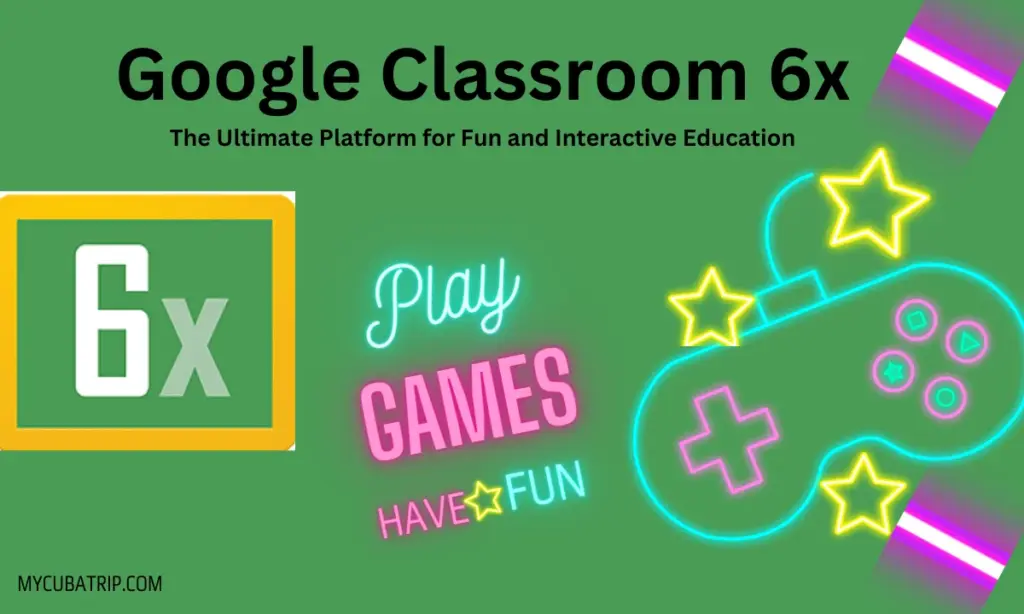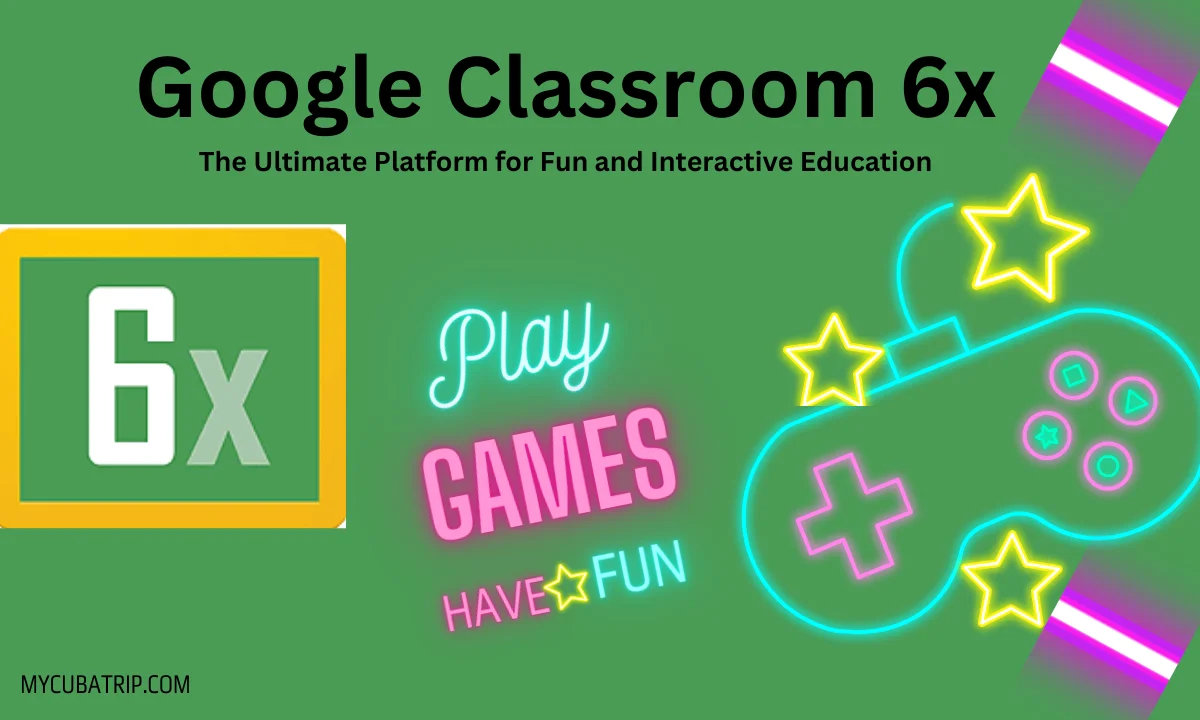
Unlock Educational Potential: Mastering Classroom 6x Unblocked
Navigating the digital landscape in education can be challenging, especially when access to valuable resources is restricted. The term “classroom 6x unblocked” represents a quest to overcome these barriers, seeking unrestricted access to online learning platforms and tools. This article provides an in-depth exploration of what “classroom 6x unblocked” truly means, the benefits it offers, and strategies for responsibly accessing educational content. We’ll delve into the technical aspects, ethical considerations, and practical applications, ensuring you’re equipped with the knowledge to maximize your learning potential in a safe and productive manner. Our goal is to provide a comprehensive, trustworthy guide that empowers students and educators alike.
Understanding the Concept of Classroom 6x Unblocked
At its core, “classroom 6x unblocked” refers to the ability to access websites, applications, and online resources that are typically restricted within a school or educational institution’s network. These restrictions are often put in place to manage student access, prevent distractions, and ensure compliance with school policies. However, these restrictions can also inadvertently block access to valuable educational tools and resources, hindering learning opportunities.
The concept extends beyond simply bypassing filters. It involves understanding the reasons behind these restrictions, identifying legitimate educational needs, and finding ethical and responsible ways to access blocked content. It’s about maximizing educational potential while respecting institutional policies and online safety guidelines.
The term “6x” itself is often associated with specific game platforms or proxy sites that were historically popular for unblocking content. While these platforms might still exist, the broader concept of “classroom 6x unblocked” encompasses a wide range of methods and resources, including VPNs, proxy servers, browser extensions, and alternative educational platforms.
The relevance of “classroom 6x unblocked” in today’s educational landscape is significant. With the increasing reliance on online learning, digital resources, and interactive tools, unrestricted access to these resources is crucial for effective learning. Students need to be able to conduct research, collaborate with peers, access educational videos, and utilize online learning platforms without unnecessary barriers.
The Role of GoGuardian in Classroom Content Filtering
GoGuardian is a widely used software in educational institutions that provides content filtering, website monitoring, and classroom management tools. It allows schools to control what websites students can access while using school-owned devices and networks. This control is intended to create a safe and focused learning environment by preventing access to inappropriate or distracting content.
GoGuardian works by filtering web traffic based on predefined categories and rules set by the school administration. It can block access to websites based on their content, keywords, or URL. It also provides monitoring features that allow teachers and administrators to see what students are doing on their devices in real-time.
While GoGuardian is effective in preventing access to harmful or distracting content, it can also inadvertently block access to valuable educational resources. This is where the need for “classroom 6x unblocked” arises, as students and educators seek ways to access these resources while still adhering to school policies and online safety guidelines.
Analyzing Key Features of Unblocking Methods
Several methods can be employed to access blocked content in a classroom setting. Understanding the features, benefits, and drawbacks of each method is essential for making informed decisions.
- VPN (Virtual Private Network): A VPN creates an encrypted connection between your device and a remote server, masking your IP address and allowing you to bypass content filters. Key features include:
- Encryption: Protects your data from being intercepted.
- IP Address Masking: Hides your location and identity.
- Server Location Selection: Allows you to choose a server in a different country to bypass geographical restrictions.
- Proxy Servers: A proxy server acts as an intermediary between your device and the internet, forwarding your requests through its server. Key features include:
- IP Address Masking: Hides your IP address from the websites you visit.
- Content Caching: Stores frequently accessed content to improve loading speeds.
- Access Control: Allows you to bypass content filters.
- Browser Extensions: Browser extensions can provide various unblocking features, such as proxy servers, VPNs, and URL shorteners. Key features include:
- Ease of Use: Easy to install and use within your web browser.
- Customization: Allows you to customize settings and preferences.
- Variety of Features: Offers a range of unblocking options.
- URL Shorteners: URL shorteners can sometimes bypass content filters by masking the original URL. Key features include:
- URL Masking: Hides the original URL from content filters.
- Link Tracking: Allows you to track the number of clicks on your shortened URL.
- Customization: Allows you to customize the shortened URL.
Each of these methods offers different levels of security, privacy, and effectiveness. VPNs generally provide the highest level of security and privacy, while proxy servers and browser extensions offer a more convenient but less secure option. URL shorteners are the least reliable for bypassing content filters but can be useful in certain situations.
Unlocking Educational Potential: Advantages and Benefits
The ability to access unrestricted online resources offers numerous advantages and benefits for students and educators alike. These benefits extend beyond simply bypassing content filters and encompass a wide range of educational opportunities.
- Access to a Wider Range of Educational Resources: Unrestricted access allows students to explore a vast array of online resources, including educational videos, interactive simulations, online libraries, and research databases. This expanded access can enhance learning and broaden students’ understanding of various subjects.
- Improved Research Capabilities: Students can conduct more thorough and comprehensive research without being limited by content filters. This can lead to deeper insights and a more nuanced understanding of complex topics.
- Enhanced Collaboration and Communication: Unrestricted access allows students to collaborate with peers and communicate with educators using a variety of online tools and platforms. This can foster teamwork, communication skills, and a sense of community.
- Personalized Learning Experiences: Students can tailor their learning experiences to their individual needs and interests by accessing a wide range of online resources. This can lead to increased engagement, motivation, and academic success.
- Development of Digital Literacy Skills: Navigating the digital landscape and responsibly accessing online resources can help students develop essential digital literacy skills. These skills are crucial for success in today’s digital age.
However, it’s crucial to balance these benefits with the need for responsible online behavior and adherence to school policies. Unrestricted access should be used to enhance learning and not to engage in inappropriate or harmful activities.
A Balanced Perspective: Reviewing Unblocking Methods
When evaluating methods to unblock content, a balanced approach is critical. While the desire to access educational resources is understandable, potential risks and ethical considerations must be carefully weighed.
User Experience & Usability: Most VPN and proxy services offer user-friendly interfaces. Browser extensions are generally the easiest to install and use. However, some methods may require technical knowledge to configure properly.
Performance & Effectiveness: VPNs are generally the most effective at bypassing content filters, but they can sometimes slow down internet speeds. Proxy servers are less reliable but may offer faster speeds. URL shorteners are the least effective and may not work at all.
Pros:
- Access to a wider range of educational resources.
- Improved research capabilities.
- Enhanced collaboration and communication.
- Personalized learning experiences.
- Development of digital literacy skills.
Cons/Limitations:
- Potential security risks: Some unblocking methods may expose your device to malware or viruses.
- Privacy concerns: Some services may collect your browsing data and sell it to third parties.
- Violation of school policies: Using unblocking methods may violate school policies and result in disciplinary action.
- Ethical considerations: Bypassing content filters may be considered unethical, especially if it’s done to access inappropriate content.
Ideal User Profile: This is best suited for students and educators who need access to specific educational resources that are blocked by content filters and are willing to take the necessary precautions to protect their security and privacy.
Key Alternatives:
- Requesting access from the school administration: This is the most ethical and responsible approach, as it involves working with the school to address your needs.
- Using alternative educational platforms: There are many online educational platforms that offer unrestricted access to a wide range of resources.
Expert Overall Verdict & Recommendation: Unblocking methods can be a valuable tool for accessing educational resources, but it’s crucial to use them responsibly and ethically. Always prioritize your security and privacy, and be aware of the potential risks and limitations. If possible, work with your school administration to address your needs and find alternative solutions.
Navigating the Digital Landscape: Essential Questions and Answers
Here are some frequently asked questions about accessing blocked content in a classroom setting:
- Q: Is it illegal to use VPNs or proxy servers to bypass content filters?
A: Generally, it is not illegal to use VPNs or proxy servers. However, it may violate the terms of service of certain websites or services, and it may also violate school policies. - Q: Can my school track my online activity if I use a VPN?
A: A VPN can mask your IP address and encrypt your traffic, making it more difficult for your school to track your online activity. However, your school may still be able to see that you are using a VPN. - Q: Are there any free VPNs or proxy servers that are safe to use?
A: While there are free VPNs and proxy servers available, they may not be as secure or reliable as paid services. Some free services may collect your browsing data and sell it to third parties. - Q: What are some alternative educational platforms that offer unrestricted access to resources?
A: Several online educational platforms offer unrestricted access to a wide range of resources, such as Khan Academy, Coursera, and edX. - Q: How can I request access to a blocked website from my school administration?
A: You can submit a request to your school administration explaining why you need access to the blocked website and how it will benefit your education. - Q: What are the potential consequences of violating school policies regarding online access?
A: The consequences of violating school policies regarding online access can range from a warning to suspension or expulsion. - Q: How can I protect my privacy while using online resources in the classroom?
A: You can protect your privacy by using a VPN, avoiding sharing personal information online, and being aware of the privacy policies of the websites you visit. - Q: What are some ethical considerations to keep in mind when accessing blocked content?
A: It’s important to consider whether your actions are fair, honest, and respectful of others. Avoid accessing content that is harmful, offensive, or illegal. - Q: How can I ensure that I am using online resources responsibly and ethically?
A: You can use online resources responsibly and ethically by following school policies, respecting copyright laws, and avoiding plagiarism. - Q: What if my school’s content filter is blocking legitimate educational resources that are necessary for my studies?
A: Communicate with your teacher or school administration. Explain the specific resource you need, why it’s essential for your learning, and how it aligns with your coursework. Providing concrete examples and demonstrating the educational value can help them understand your request and potentially adjust the filter settings.
Empowering Education Through Responsible Access
In conclusion, “classroom 6x unblocked” represents the pursuit of unrestricted access to online educational resources. While unblocking methods can offer numerous benefits, it’s crucial to use them responsibly, ethically, and with careful consideration for security and privacy. By understanding the risks and limitations, working with school administrations, and exploring alternative educational platforms, students and educators can unlock the full potential of online learning while maintaining a safe and productive environment.
Share your experiences with navigating content filters in the comments below. Let’s foster a community of responsible digital learners!

